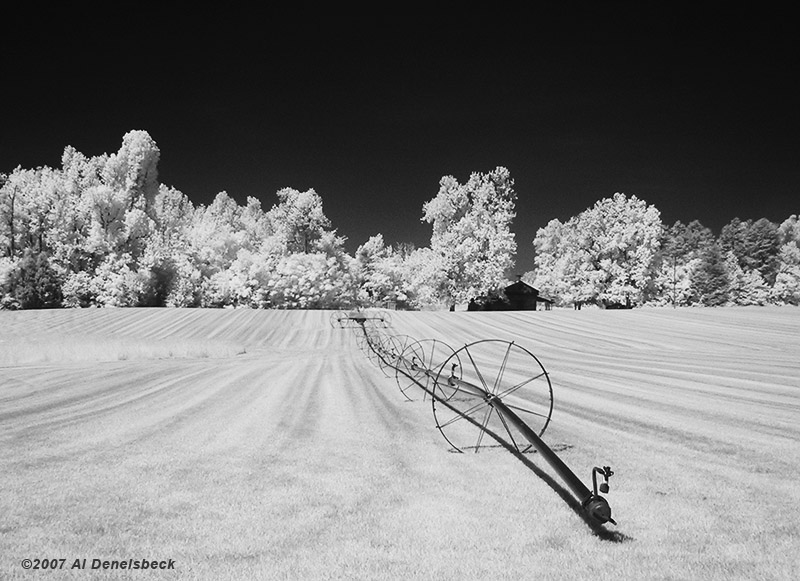Canon Pro 90 IS,
tripod
9.06mm focal length
ISO 50
1 second at f2.8
Lee 87C infrared filter
Contrast increased in post-processing
|
Canon Pro 90 IS,
tripod |
| Light that we don't call "light" | |
 |
|
What we refer to as "light" is actually a very narrow band of the electromagnetic spectrum, a specific range of wavelengths. Outside of these sits other wavelengths that we don't call "light," things like radio waves, X-rays, and just outside the very edges of what we can detect with our eyes, ultraviolet and infrared light ("ultraviolet" meaning "above violet" and infrared meaning "below red"). What's funny about this is, because of the nature of digital sensors, they are sensitive for a short range of infrared, sometimes called "near infrared."
Many cameras include a filter inside to remove this infrared light before it hits the sensor, because the camera will not only record it, it gets converted into visible wavelengths in the image. This can result in things that are high in infrared reflectivity becoming a bit washed out in the image. And that's how I discovered this ability in the Canon Pro 90 IS – foliage was looking a bit over-exposed.
The simple addition of an infrared filter created a whole new approach to photography. I'd known about infrared films before, but the Pro 90 made it much simpler to tackle. The filter blocks nearly all visible light, and the near-infrared light reflected by foliage isn't a lot, so exposure times go very long – this was a very bright sunlit day, about the only kind that works in infrared, but the exposure time was quite long. What you're seeing here is the differences in types and conditions of foliage, as well as the sky, in reflecting infrared. Bright green leaves reflect very well, pines less so, and the blue sky virtually not at all. Skin, by the way, is about as reflective in infrared as it is for visible light, so people actually appear with normal tones in infrared shots, sometimes making for a confusing composition.
On top of all that, I really like the composition of this one, and infrared actually improved it in my eyes. Um, well, you know, once it was converted so I could see it...
